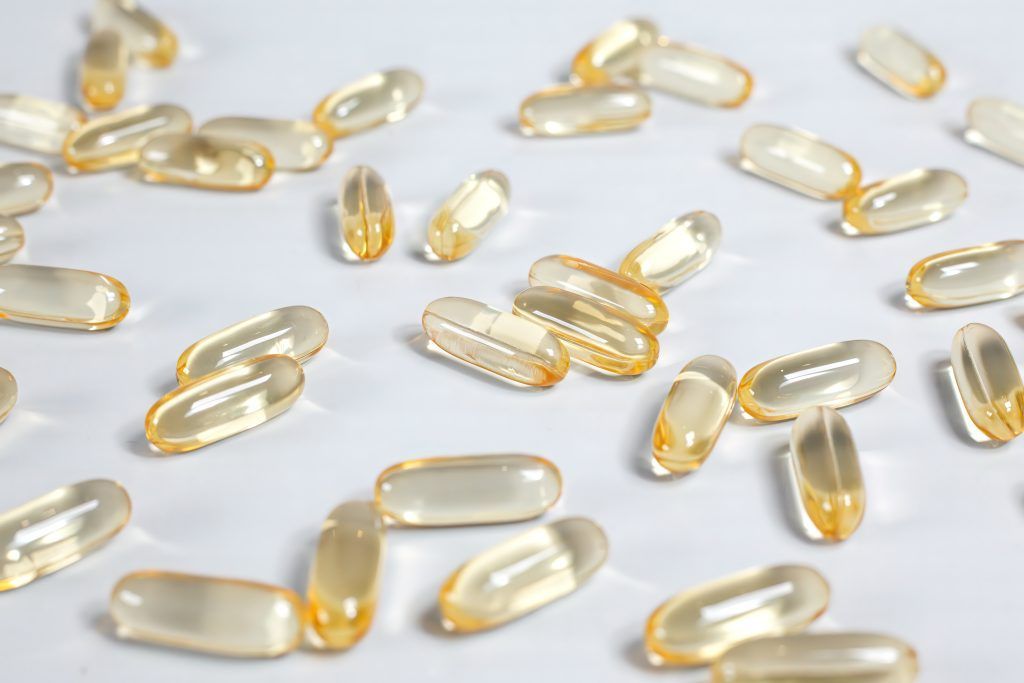
Fish oil is hailed as a must-have component in Recommended Dietary Intake (RDI) by nutritionists, and the pharma industry has been waxing eloquently about its miraculous effects on heart health, improvement of skin complexion and hair growth, and its numerous other benefits. This is promoted as a nutrient-rich, irreplaceable ingredient because of its main component — omega-3 fatty acid — loaded with essential goodness required for building and maintenance of overall health.
Worried that your fish intake is less or next to nothing? If yes, fish oil supplements are the answer to your woes. Marketed as a beneficial go-to natural health supplement, fish oil capsules are widely popular all over the world. But do we really need to pop these pills externally to ensure an optimum intake of omega-3 fatty acids? Here is everything you need to know about fish oil and its possible health benefits.
What is fish oil and what does it comprise?

In simple terms, fish oil is nothing but fat or oil extracted from the fish tissue. Varieties of fish including herring, tuna, anchovies, salmon and mackerel are majorly said to contain maximum levels of oil. Also, there are specific types of fish that are used to extract cod liver oil. As mentioned above, the hero ingredient here is omega-3 fatty acids. If you further break this nutrient down, you will find three types of components — Eicosapentaenoic acid (EPA), Docosahexaenoic acid (DHA) and Alpha-linoleic acid (ALA). While EPA and DHA are found in oily fish, ALA is mainly found in vegan sources of food.
Omega-3 is present in all the key tissues of the body, especially the brain, retina and even sperm cells. They are in the cell membranes covering these tissues.
But you should consume fish oil not only for the omega-3 fatty acids but also because it is loaded with essential minerals including vitamins A and D in varying quantities depending on the type of fish consumed.
Best plant-based alternatives for fish oil

While eating oily fish is one of the best sources of meeting the RDI needs of omega-3 fatty acids, individuals following a vegan or vegetarian diet can opt for plant-based alternatives to get these nutrients. The most popular ones are of course canola oil and flax seeds. Other than that, chia seeds, brussels sprouts, algal oil (oil extracted from a few types of algae), hemp seed and walnuts are other sources of omega-3 fatty acids.
An important fact to remember is that these vegan options contain only ALA type of omega-3 fatty acid which is not active in the body and is converted to the other two types of omega-3 fatty acids — EPA and DHA. The human body can convert only 5 percent of ALA into EPA and less than 0.5 percent into DHA. This means that those following a vegan diet must consume larger portions of these plant-based foods than the fish-eating folks, to get an adequate amount of omega-3 fatty acids.
Probable benefits of fish oil

The popularity of fish oil is undisputed in the world of nutrition but where did it all start? In 1971, a group of Danish researchers chanced upon a community on an island in Greenland, which had lower cholesterol and a lower rate of heart disease as compared to people living in Denmark. The scientists came up with a theory that the larger amounts of seafood consumed by these Inuits were the reason for their excellent heart health.
This theory is not entirely true because as per a study conducted by Brigham and Women’s Hospital in 2010, intake of other omega-3 supplements also reduces the risk of cardiac arrest. Though not completely as per this study, but it reduced by 19 percent in the people who consumed lesser amount of fish in their diet but took other supplements.
However, it cannot be denied that fish oil has numerous benefits indeed. Here are other health benefits of fish oil.
Good heart health
As per a study by the National Library of Medicine conducted in 2017, people who consume fish oil have lower cholesterol, lower triglycerides, reduced blood pressure and lesser amount of plaque deposition around arteries.
Supple and glowing skin

Consuming omega-3 acids may help ageing skin. It is also advisable to add this component topically as a part of your skincare routine to maintain healthy skin and treat disorders like psoriasis and dermatitis. A study conducted by the National Library of Medicine in 2020 confirms this.
Supports prenatal health
It is essential to include omega-3 and fish oil supplements if you are pregnant because these are linked to foetal brain development. According to a study conducted by The Journal Of Nutrition in 2018, continuing this intake well into your breastfeeding years ensures good eye-sight and lesser allergies for your newborn.
Helps with inflammation
According to a study conducted by the National Library of Medicine in 2018, fish oil has a lion’s share in managing rheumatoid arthritis. Apart from this, taking fish oil supplements may help individuals facing chronic inflammation due to obesity or diabetes.
Aids in improving eyesight
Ageing people with weaker eyesight are recommended to take fish oil as it helps in improving their eyesight. A study was conducted in 2016 dedicated to a target group of patients suffering from Age-Related Macular Degeneration (AMD). They were observed to have shown positive results after taking a high dose of fish oil.
Helpful in ADHD and depression
Did you know? The brain is made up of 60 percent fat, the majority of which constitutes omega-3 fatty acids. This is the reason why fish oil is recommended to reduce symptoms of a number of psychotic disorders ranging from schizophrenia to bipolar disorder. Not just this, fish oil is said to help with Attention Deficit Hyperactivity Disorder (ADHD) in kids. Patients diagnosed with depression are also advised to take omega-3.
Factors to consider before stocking up on fish oil supplements

Those who are allergic to seafood or shellfish should not consume fish oil supplements without consulting health professionals. Also, a key factor to keep in mind is that manufacture of fish oil supplements is not standardised and hence one is unaware of the proportion and ingredients used.
Another issue is that the common diet as popularised by western culture has incorporated a lot of omega-6 fatty dietary foods, replacing the omega-3 fatty acid-rich diet. This disproportionate ratio of fatty acids can lead to health complications. The best is to consult a nutritionist and chalk out your diet plan with them before including any health supplements in your diet.
Even though there is much hoopla about the benefits of fish oil supplements, doctors recommend that it is best if they are consumed as whole food. Including fatty fish in your diet once or twice a week is recommended. Research on fish oil supplements and their effects on health is still on but according to studies so far, the results remain mixed.
(Main and featured image credit: CA Creative/Unsplash)
The post Fish oil: Say yes to balanced health with this miracle health booster appeared first on Lifestyle Asia Hong Kong.

